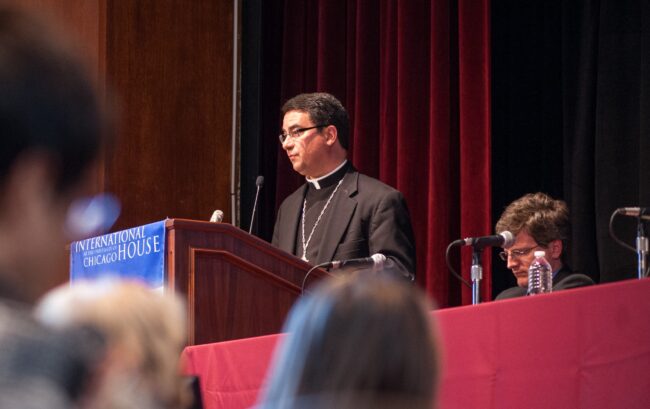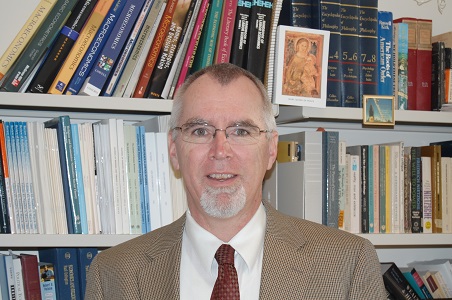A keynote talk from Bishop Oscar Cantu of Las Cruces headlined the discussion of the family and its role in the economy on April 30 and May 1, as economists, bishops, and other scholars gather in Chicago for the Lumen Christi Institute’s 7th annual Conference on Economics and Catholic Social Thought. The theme, “The Family and the Changing Economy”, was quite timely, falling squarely between the two October meetings of the 2014-15 Synod of Bishops on the Family.
The public event was opened by Blase Cupich, Archbishop of Chicago, and involved responses by CREDO economists Valerie Ramey (UC-San Diego) and William Evans (Notre Dame), as well Pierre-Andre Chiappori (Columbia), a noted expert on the economics of the family, and Christine Firer Hinze (Fordham), a social ethicist focusing on the family. …






